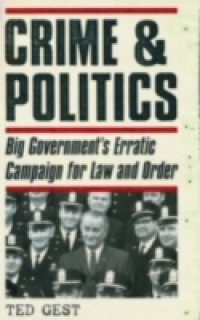Why has America experienced an explosion in crime rates since 1960? Why has the crime rate dropped in recent years? Though politicians are always ready both to take the credit for crime reduction and to exploit grisly headlines for short-term political gain, these questions remain among the most important-and most difficult to answer-in America today. In Crime & Politics, award-winning journalist Ted Gest gives readers the inside story of how crime policy is formulated inside the Washington beltway and state capitols, why we've had cycle after cycle of ineffective federal legislation, and where promising reforms might lead us in the future. Gest examines how politicians first made crime a national rather than a local issue, beginning with Lyndon Johnson's crime commission and the landmark anti-crime law of 1968 and continuing right up to such present-day measures as "three strikes" laws, mandatory sentencing, and community policing. Gest exposes a lack of consistent leadership, backroom partisan politics, and the rush to embrace simplistic solutions as the main causes for why Federal and state crime programs have failed to make our streets safe. But he also explores how the media aid and abet this trend by featuring lurid crimes that simultaneously frighten the public and encourage candidates to offer another round of quick-fix solutions. Drawing on extensive research and including interviews with Edwin Meese, Janet Reno, Joseph Biden, Ted Kennedy, and William Webster, Crime & Politics uncovers the real reasons why America continues to struggle with the crime problem and shows how we do a better job in the future.

